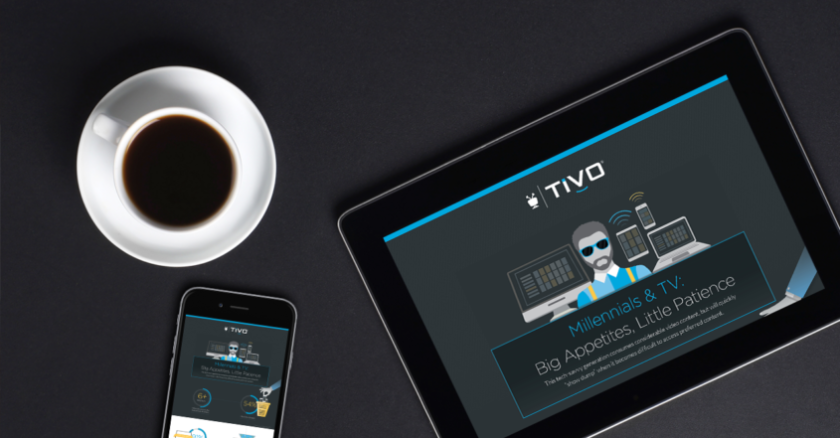M+E Connections

TiVo CFO: Company Upbeat About New Opportunities in Evolving TV Market
Story Highlights
TiVo likes its position in today’s rapidly evolving TV and video content market and continues to see several opportunities, according to its CFO, Peter Halt.
“TiVo isn’t the company it was several years ago,” he said Nov. 29 at the Credit Suisse Technology, Media & Telecom Conference in Scottsdale, Ariz. Although some people may still think of TiVo as a hardware and “consumer-centric” company, that only tells a small part of the story since its purchase by Rovi last year, he noted. As a result of that merger, today “95 percent of our revenue is non-hardware,” coming “from software solutions and licensing” and the company is now “largely focused on B2B customers,” he told the conference.
Credit Suisse analyst Owen Bittinger asked Halt where TiVo sits in this “evolving landscape” that’s filled with several new players as “streaming is gaining share” and there is the “potential for a lot of consolidation.”
In response, Halt said: “We’re extremely excited about the transformation that’s going on in the market. We think it’s a great opportunity for us. I think some … people don’t understand how much of an opportunity it is. We can look at it first from the licensing side, then look at it on the product side. On the licensing side, what you’re seeing is people recognizing that they’re going to have to invest significant money to address how and where people want to ingest and discover their entertainment. So, people are entering longer-term deals with us because they want that certainty around having the patents licensed while they’re making that investment. It also gives us the opportunity to pick up new licensees.”
Historically, the company has licensed its technology to service providers and consumer electronics manufacturers, offering them a “complete or near-complete discovery solution,” he pointed out. But, “now, we find ourselves licensing both mobile and peer” over-the-top (OTT) companies as well, for “a much lower rate for a solution related to a single channel offering in essence of discovery” or to the growing number of virtual multichannel video programming distributors (MVPDs) that are “looking to offer linear television, be it over the air or … through cable tied in with OTT,” he said, adding: “All of a sudden, they’re looking at licensing all of our innovation.”
On the product side of the equation, there is now the need for a single user interface for viewers to find all the content they want to watch, and consumers don’t want to use multiple apps to do that, he went on to say. “They’re looking for a single user interface,” he told the conference.
At the same time, voice is becoming increasingly “prevalent” and important, and that’s a good thing for TiVo because the company is “the leader in innovation” around voice for discovering entertainment content, he said.
There’s also an opportunity for TiVo to attract new investors who may still think of TiVo as a hardware-only company and mistakenly believe it isn’t taking advantage of the OTT expansion, he said.
There’s also still an opportunity to pick up Comcast as a licensee once the legal dispute between the two companies is resolved, he said. On the intellectual property side of the business, TiVo is “fully penetrated” in the U.S. except for Comcast and “we also have phenomenal opportunities internationally, particularly in Canada” and “we also see great opportunity over in Europe,” he said.
TiVo will also be coming out next year with an IPTV version of its interactive TV guide, which should further expand penetration for its guide, he told the conference. The company also continues to eye more opportunities in OTT and mobile on the licensing side of its business, he said.









